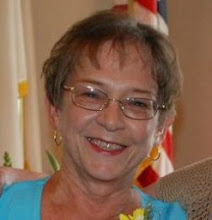The Joys of
History
Anyhow,
the Gumms and the one remaining Majesty (Daisy) decide to vote for the
Republican candidate, Calvin Coolidge, in 1924. Daisy’s favorite president up
to and including 1924 was the Republican Theodore Roosevelt, because he was a
reformer! No longer could food-processing companies poison the consumers of
their foods with impunity, because Teddy Roosevelt put his foot down (not on
the food). Roosevelt was also a vigorous conservationist and established the
United States Forest Service, allowing the creation of five National Parks.
Daisy is all for national parks and for reform, even if she isn’t quite sure
what needs to be reformed. Of course, if she had been able to vote in 1920, she’d have voted for Warren G.
Harding, who died before everyone discovered he was a rotten crook.
Like
most of us, Daisy is more concerned with her day-to-day life than she is about
national and international politics. She probably would lift her eyebrows if
she read about Coolidge’s immigration law, which restricted immigration to the
United States, but she wouldn’t think too much about it because it didn’t
affect her personally. She’d be more interested, not to say delighted, that her
daily newspaper had begun printing crossword puzzles because she’s a wordsmith,
if not a particularly well-educated one.
She’d
naturally be horrified by the brutal murder of young Bobby Franks by Nathan
Leopold and Richard Loeb, who wanted to prove their intellectual superiority by
committing the “perfect crime.” As Sam Rotondo could have told the two
murderers, there’s no such thing as a perfect crime; but sometimes it’s
difficult to find evidence pinpointing the perpetrators of whatever crime is
under examination. In fact, this is a problem for Daisy in SPIRITS UNITED. As
ever, Daisy remains only slightly daunted in her search for the criminal.
According to Sam, she’s not supposed to be anywhere near the crime and its
suspects, but Daisy persists anyway. She’s such
a buttinsky!
Daisy
is a good person. Even she feels a little uncomfortable about her animosity
toward the entire German people because Germans killed her husband via the
Great War. She knows she’s being irrational, but she can’t quite help herself.
This is primarily because she and a whole lot of other people blamed the war
and everything that happened during it on Kaiser Wilhelm. They’re wrong, of
course. The Kaiser was as much of a nitwit as anyone else, but he was far from
the only instigator of that ghastly and incredibly stupid war. However, Daisy
couldn’t know what we can know,
because the war was current news to her. It wasn’t history, as it is today. Did
you know, for instance, that many Germans didn’t believe they’d actually lost the war? Well, they didn’t. After
all, no battles were lost on German soil.
Daisy’s
creator (moi) has read extensively
about World War I, however, and it’s easy for me to see Daisy’s prejudice is .
. . well, biased, you know? I mean, all prejudices are. The fact that a German
Jew invented the gas that eventually drove her husband Billy to his suicide is
only ironic to those of us who understand WWI wasn’t, as it was often called,
The War to End All Wars. Rather, it was only the beginning of a long, steady
decline in German policies that eventually led to Hitler and his cronies murdering
millions of Jews, Gypsies, Catholics and other “inferior” people.
All
of this is kind of my way of saying, in effect, that the more things change,
the more they stay the same.
For
instance, my own two grandsons, Daigoro and Rikiichi, had a Japanese father.
Born in Tokyo, by gum. And do you know why Keiji (Dai and Riki’s dad) was born
in Tokyo? Because Keiji’s father, who was born and reared in California, was
sent to a Japanese detention camp in Poston, Arizona, during WWII. He was so
annoyed by his family’s incarceration (and the loss of everything they
possessed) that he moved to Japan as soon as he could. Then there occurred a series
of other circumstances that led to him moving back to the United States. If not
for WWII, Dai and Riki would be Satomuras instead of Oshitas, but I won’t go
into the reasons for that here. Let’s just say life is complicated. It’s even
more complicated for Dai and Riki when it comes to the Issei, Nisei, and Sansei question.
Nevertheless, Riki always attends the Nisei Festival in Los Angeles every year.
What the heck, you know?
My
son-in-law’s family changed their Italian last name to a non-Italian last name
after WWII, by the way. Not that it matters here. I just mention it because
it’s interesting, and I wonder if Sam Rotondo’s family would be tempted to do
the same thing if they lived long enough to see WWII. Clearly, Daisy’s not the
only person in the world to descend to irrational biases. Heck, my other
son-in-law is an Armenian from Iran. Mind you, Armenians are culturally
Christian but he’s from Iran and, therefore, if he were attempting to get into
the United States today, he couldn’t.
Gah. Enough of that.
I’ll
be in touch with the winners UNSETTLED SPIRITS, January’s contest book, individually.
At the end of February, I do believe I’ll give away three copies of the
original hardback version of GENTEEL SPIRITS. If you’d like to enter the
contest, just send me an email (alice@aliceduncan.net) and give me
your name and home address. If you’d like to be added to my mailing list, you
may do so on my web site (http://aliceduncan.net/) or email me
(you won’t be smothered in newsletters, because I only write one blog a month).
If you’d like to be friends on Facebook, visit my page at https://www.facebook.com/alice.duncan.925.
Thank you!







